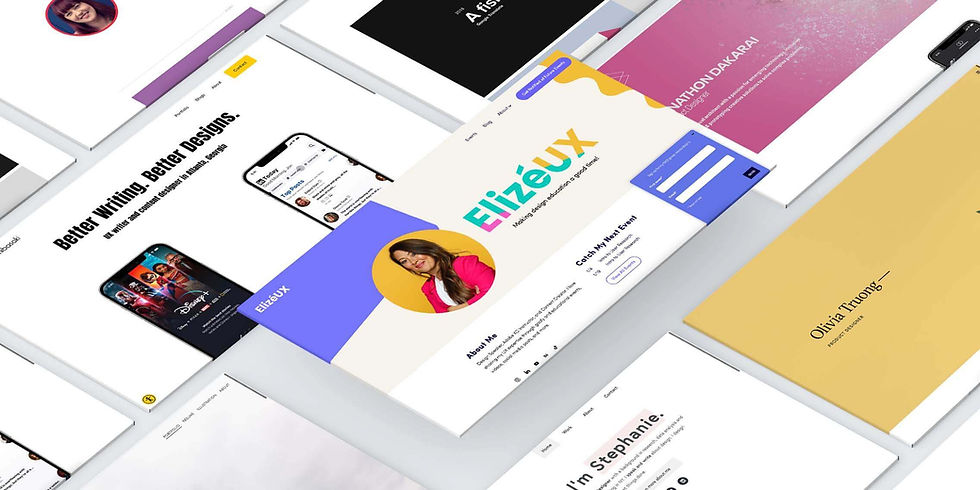Stand Out with Personal Brand: How to Find Your Career Niche That Gets You Noticed
- Tianyu Koenig
- Nov 5, 2024
- 3 min read
Updated: Apr 19, 2025
In today’s market, roles are more specialized than ever. Hiring managers aren’t just looking for smart, capable people—they’re searching for the right expert to solve a specific problem. That’s why generalist positioning falls flat, and why you need to stand out with a clear career niche.
Your personal brand isn’t just about visibility—it’s about memorability. Here’s how to shape a brand that actually sticks and signals “I’m the one.”

1. Elevate Your Personal Brand
Being a generalist may feel safe, but it often makes you forgettable. Instead, get specific. Identify your niche and make it the backbone of your resume, portfolio, and LinkedIn profile. Hiring managers want confidence that you’ve already succeeded in the role they’re hiring for.
Examples:
Product Designer:If you specialize in designing data-heavy dashboards, highlight projects where you simplified complex information. For instance, redesigning a SaaS metrics dashboard that improved data comprehension and drove a 40% lift in user engagement.
Product Manager:If your edge is data-driven decision-making, show it. Use case studies where your insights led to measurable results—like a 30% increase in adoption after you revamped onboarding based on user research.
Your personal brand intro should make your niche unmistakable at a glance:
“Hi, I’m Alex — a PM focused on data-driven growth for SaaS platforms.”
“Hey there! I’m Venessa — I build fintech tools non-experts can actually use.”
“I’m Chloe, a Product Designer creating seamless e-commerce flows for global markets.”
2. Target Roles in Your Domain
To truly stand out with your career niche, stay close to what you know—then branch strategically. Instead of leaping into a completely new industry, look at roles in adjacent fields where your existing expertise is a competitive advantage.
Examples:
Product Designer:If your background is in enterprise tools, but you’re eyeing e-commerce, spotlight your strength in workflow efficiency. That kind of UX thinking directly impacts conversion in retail platforms.
Product Manager:Coming from health tech and aiming for fintech? Emphasize transferable strengths like regulatory experience or data security—shared challenges across both domains.
When your niche overlaps with a company's specific need, you become the obvious choice.
3. Network in Alignment with Your Niche
It’s not just what you say on your LinkedIn or resume—your network should echo your niche too. The more consistently you show up in the right circles, the more your brand starts to work for you passively.
Here’s how:
Follow key voices in your niche on LinkedIn or XHS. Engage with their content thoughtfully—it builds visibility within the right community.
Attend niche-specific events, panels, or webinars. Even one meaningful connection in your space can lead to referrals or inside opportunities.
Tailor your intros when reaching out:“I’m focusing on AI-driven product growth in consumer health—saw your work on [X] and would love to learn more about how you approach it.”
Share content or insights relevant to your niche—even resharing articles with a smart caption counts. Over time, people will associate you with your domain.
This kind of targeted networking reinforces your positioning and creates organic inbound interest from people who see you as “one of us” in the space.
Ready to Own Your Narrative?
A strong personal brand doesn’t mean reinventing yourself. It means amplifying what already makes you different. When you stand out with a clear career niche, you make it easy for hiring managers to say “Yes.”
Struggling to define your edge? I help clients uncover and shape authentic, strategic personal brands that resonate—and convert.



Comments